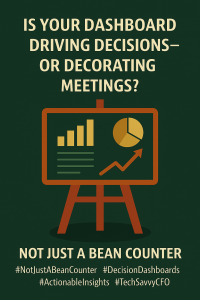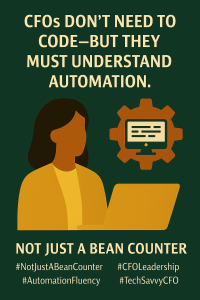Technology Integration
Integrating the right technology is key to unlocking efficiency and insight. To succeed in this age, accounting leaders need to be up to date on how to leverage automation software, AI, and real-time data tools—not just to speed up tasks, but to enhance decision-making and drive lasting value.
Consider automated software
When it comes to streamlining accounting workflows, automated software can be a game-changer. From accounts payable and receivable automation to close management and reconciliation tools, today’s systems are built to handle repetitive, rules-based processes with speed and accuracy. The right software reduces manual procedures, enhances compliance, and increases efficiency. While solutions like numeric, BlackLine, and FloQast can help, if you already have an accounting system (e.g., NetSuite, PeopleSoft, SAP) look to the native automation features it offers you and whether you are fully utilizing the software you already have. It is not just about replacing tasks or adding software, it is about freeing up time and talent for more impactful work and making sure you are utilizing your current resources to the fullest.

Leverage AI and AI agents

Artificial intelligence is no longer a future concept—it is here, and it is reshaping how we approach accounting. However, and regrettably, it is not a widely understood tool. There are a ton of articles indicating that AI-powered agents can parse thousands of transactions to detect anomalies, categorize expenses, and even draft financial summaries. Tools that are currently available (a quick google/ChatGPT search brought up names like MindBridge, Vic.ai, and even ChatGPT itself) can support tasks ranging from audit risk assessments to policy, procedure and memo drafting. These agents cannot totally replace humans in this effort; however they attempt to replicate human behavior and can enhance decision-making by uncovering patterns and exceptions that would take hours to identify manually. Integrating AI can elevate both the speed and depth of your financial insights, just remember to build in checks and reviews into the process. Unquestioning reliance on AI can lead to significant risk as there are certain pitfalls you may encounter depending on its utilization such as the old concept of GIGO (Garbage In/Garbage Out) and, in the usage of ChatGPT/Copilot, it may include incorrect or misleading information.
Embrace real-time data analysis
Static reports are quickly becoming obsolete in an environment that demands fast data for informed decision-making. Real-time data analysis allows teams to monitor key performance indicators (KPIs) as they happen—whether it is cash flow, margins, budget variances, or forecasting accuracy. With tools like Power BI, Tableau, and Qlik, organizations can create dynamic KPI dashboards that offer a live view of the business. This shift toward real-time insight does not just improve reaction time, it enables proactive decision-making, scenario planning, and a more agile function.

Ready to lead beyond the ledger?
Follow us on:
#NotJustABeanCounter #UltimVentures #FinanceTransformation #AccountingInnovation #AccountingTransformation #AutomationMidndet #FinanceInnovation #Automation #DataAnalytics #TechnologyIntegration







